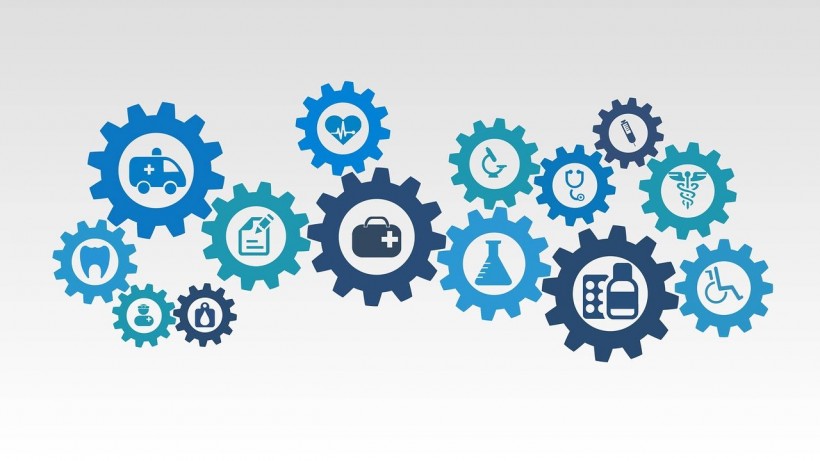The CoronaVirus pandemic has caused a lot of unprecedented changes to healthcare services and delivery. This is because the need for virtual care and remote health monitoring during the pandemic has given birth to a surge in the growth of tech-driven healthcare development services, pushing more healthcare firms to improve their facilities by adopting and investing in new health tech trends. According to the HIMSS report, around 80% of health systems plan to increase their investment levels in digital healthcare in the next five years. Therefore, custom healthcare software development will not only gain momentum during the COVID-19 season only but will also go beyond to change the future of medicine.
4 Most Needed Tech-driven HealthCare Development Services in 2021
There has been a surge in software development in healthcare industry in recent years. According to the Centre for Medicare & Medicaid Services (CMS), the value of the national healthcare product is expected to rise as high as $6 trillion by 2026. This shows that the healthcare market continues to increase rapidly with a lot of opportunities. However, you must be ready to embrace and employ digital services such as healthcare custom software development for your medical practice to bring in more businesses, yield better financial results, and have a better patient care experience. Here are 5 top tech trends you have to get familiar with.
1). Telemedicine
The use of Telemedicine has increased spontaneously in recent times as a result of the social distancing amidst pandemic crises. The U.S. Department of Health and Human Services (HHS) defines telehealth as electronic information and telecommunications technologies (such as computers, video, phone, messaging) to support long-distance clinical health care. Through online portals, video software, wearables, and custom healthcare app development (Telemedicine apps), healthcare providers can collect real-time data on a patient's condition and give a diagnosis, treatment options, and prescriptions. Check here to see more about the rise of Telemedicine.
Benefits of Telemedicine
● Expanded access to healthcare services
● Lower healthcare cost
● Reduced contact
● Continuity of Healthcare
2). Artificial Intelligence (AI)
Medicine is one of the industry sectors that benefit most from AI. During the COVID-19 pandemic, the need for efficiency and touch-free interaction increased spontaneously, and the healthcare sector faced a massive reduction in staff due to illness or compulsory isolation. However, AI was available to fill in this space using natural language processing (a branch of Artificial Intelligence that enables computers to understand spoken remarks and store a vast amount of medical information) and automated services like symptom checking chatbots. Some examples of AI platforms include IBM Watson, the GNS system, and Google's Deepmind. According to research analytics, the healthcare market is projected to grow from $667.1 million in 2016 to $7988.8 million in 2022.
3). Internet of Medical Things (IoMT)
IOMT is made up of hundreds of thousands of devices designed by the industry. It involves using various wearable devices, monitors, and integrated mobile apps by doctors and patients for tracking, diagnosing and preventing dangerous medical conditions. According to research analytics, the IoT market is projected to be worth $6.2 trillion in 2025. The benefits of IoMT includes:
● Provision of healthcare services at lower cost
● Improved clinical workflows.
● Faster Diagnosis
● More efficient treatments
● Real-time patient monitoring
4). Genomics
According to the Nations Human Genome Research Institute (NHGRI), Genomics involves using a person's genetic information to enhance their clinical care (e.g., diagnostic or therapeutic decision-making) and the health outcomes and policy implications of that clinical use. The use of genomics in the healthcare sector may soon lead to solutions for malaria, hepatitis B, tuberculosis, and cystic fibrosis. Also, medical researchers are carrying out clinical trials on how mRNA medicines can be used to cure cancer.
The digital transformation of the health sector will continue to increase rapidly from the present into the future. Thus, it is always expedient for healthcare firms to embrace and invest more in tech-driven healthcare development services to keep up with the future and take advantage of what is coming.
* This is a contributed article and this content does not necessarily represent the views of sciencetimes.com













![Sat-Nav in Space: Best Route Between Two Worlds Calculated Using 'Knot Theory' [Study]](https://1721181113.rsc.cdn77.org/data/thumbs/full/53194/258/146/50/40/sat-nav-in-space-best-route-between-two-worlds-calculated-using-knot-theory-study.png)

